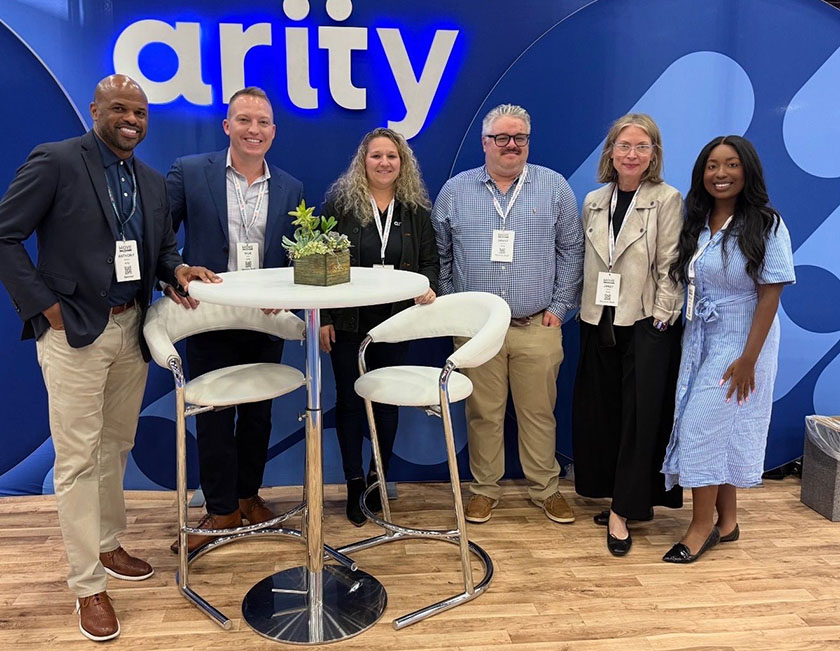9 facts for 9 years of Arity! Read article


In college, I was an international relations and German major. So, I took a lot of history courses — one in particular was about the history of Europe between the wars. It was about how you could see the different cultures and countries kind of be set up for another war, and not as a way to possibly prevent bigger conflicts and things like that.
But yeah, it was really interesting because it’s kind of a forgotten piece of history. When we skip straight from World War I to World War II, we skip all the stuff that happens in the middle of it. So, it was just kind of very cool to learn how things were set up for, unfortunately, another war.
The idea that carrots are good for your vision was World War II propaganda by the English because they didn’t want the Germans to know that they had radar capabilities. Carrots aren’t that good for your vision. They’re probably good in other ways, but yeah, that’s an interesting thing.
I usually just do some ramen. It takes three minutes, and you can throw some veggies in it if you want – or a sauce or whatnot. But if I need something quick and tasty, that’s what I’ll do. I’ll boil an egg with it, or if I have some leftovers, I’ll throw it in. But yeah, that’s my quick go-to. They sell little packets of fancy ingredients that you can add to it.
I studied German, so I speak German as well. Last year, there was a family that moved to the Chicago area. The husband actually lived in my hometown and was friends with a mutual friend. His wife and kids don’t speak any English, so I was able to use my German and offer them a place to stay when they first moved here and were looking for places. I’ve kind of have kept in contact with them too.
And I also have a few other friends from high school and exchange programs that I still keep in contact with, but we usually just speak in English when we’re communicating. So, this was the first time in 15 years, or something, that I was actually speaking German to people that didn’t speak English.
A little bit of family background – my mom and dad didn’t speak it, same with my grandparents. I think my grandparents were a generation removed from their German roots. And so, my high school had two options for foreign languages, German or Spanish. My sister took Spanish, and I didn’t want to be like my sister, so I took German.
My folks had a small hardware store in the town I was from. So, I started working there really early, probably eight or nine years old. I was either working as the cashier, putting things together like bicycles and lawnmowers, or just doing general maintenance of mopping the floors and getting on the ladder to change those fluorescent light bulbs that are in the ceiling.
The best part of it was when my dad figured out that he could go to video rental stores and buy all of their not-well-circulating video games and then sell them. And so, one of my jobs was to test the video games out on the old Nintendos, and so he would basically come home with a box of these, and then I would put them in the machine, turn it on, make sure that you could play it. But what ended up happening was all the good games, I’d play for hours. The bad games, it’s just like, plug them in, if they work, they work. If they don’t, then you throw them in a pile. But I got to play a lot of games that way.
I never got an official paycheck. And I always had to work on weekends and usually Friday nights. So, I think that it was a way to keep me around and keep me out of trouble, basically.
I think it’s probably “The Matrix.” From a cinematography point of view, it was kind of on the bleeding edge of how they use the cameras for the bullet time. Then also, it just kind highlighted how technology could just take over your life in a way. I think it predicted a lot of things, unfortunately, with just how enmeshed it could be.
Of course, we’re not being food for machines, but the way that everybody kind of fell into it, and how you could break away and see what was actually happening, I think that left a pretty big mark on a lot of people. It’s a movie that is part of our cultural collective knowledge still. So, it’s definitely kind of held on to its impact, I think.
Yeah, it’s just taking time to be kind, whether it’s holding open a door for somebody that’s walking behind you or letting somebody in if you’re in traffic. It can be difficult and you forget, especially the traffic part. But, if you just kind of slow down a bit and just be pleasant to people in general.
For instance, when you have a problem with customer support, it’s not them that you have the problem with, it’s whatever product it is. Or, if you’re at a restaurant and something takes too long to get to you, it’s just something that happens.
I think a key thing with being remote, and especially if you’re just chatting as your first line of communication, is to try not to, I guess, read intent as much when it’s just a sentence because you don’t know. Don’t try to paint a certain picture of what words had different emotion, or whatever, and just try to take a step back and focus on what’s being asked – not what the context is all the time.
Use the technology to your advantage. You can set up your working hours so that your phone’s not being inundated with notifications after you should be logged off, and just have a decent start time and end time. Also, take advantage of being flexible if your team allows it, and you can pick up your kids, or prepare lunch, or whatever. You can set up some time blocks so that you’re not constantly sitting in front of a computer the whole day.
You can just kind of actually shut down at the end of the day and not have it ready to go. I think that helps because just having to log back on and load up your different programs or browsers, it’s just one more thing that takes time. So, you can use that as an excuse not to go on if it’s not super important. Yeah, I think most of the things that we do, it can wait until the next morning.